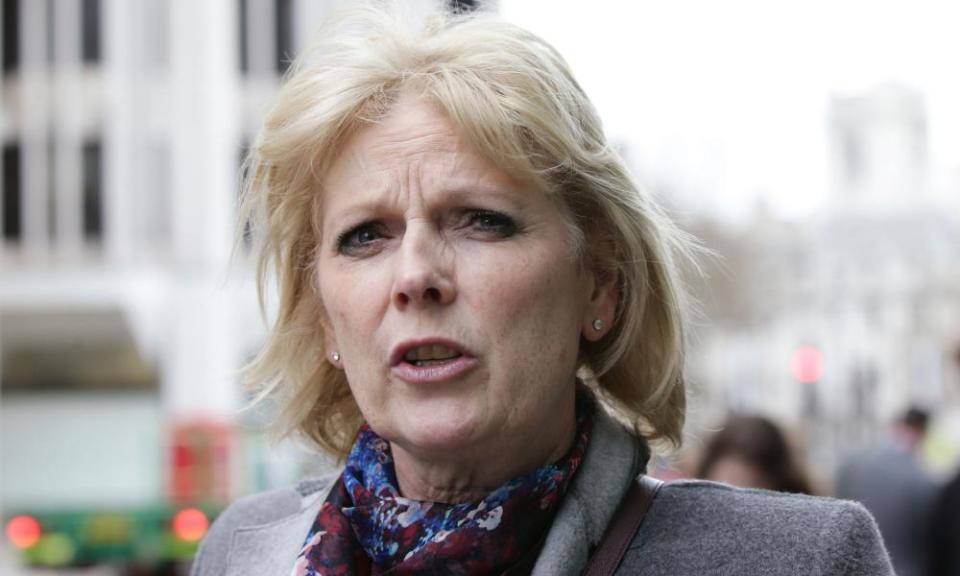Theresa May faces defeat by MPs demanding vote on final Brexit deal

Theresa May faces a devastating Commons defeat over Brexit within weeks if she continues to deny parliament a meaningful vote on the final deal with the EU, Tory and Labour MPs have warned.
With the withdrawal bill returning to the Commons on Tuesday, a cross-party group who oppose a hard Brexit and are co-operating on tactics say they believe they have the numbers to defeat the government if they are denied such a vote.
While the critical amendments and closest votes are not expected to be taken until next month, Tories who oppose a hard Brexit insist there is no softening of their position and that they are biding their time ready to strike before Christmas.
Some Tories say they are even more determined to insist on parliament’s right to veto a bad or no deal because the prime minister appears not to have responded to any of their concerns over recent weeks.
Instead, in what was seen by many as a provocative move, she announced last week that the government had tabled its own amendment that would commit the UK to formally leaving on 29 March 2019, whatever the outcome of negotiations and even if there were no deal.
A Commons defeat for May over Brexit, at a time when her government is reeling from the loss of two cabinet ministers in six days – and may lose more – would raise further questions over her ability to survive as prime minister.
Anna Soubry, a Tory rebel who strongly backs a veto for MPs, criticised May’s amendment as a sop to the anti-EU wing of the party. She said it had been “done to appease the hard Brexiteers and keep them on Theresa’s side”.
She added: “It is not necessary and, indeed, will tie the government’s hands. I will need some persuading not to vote against it.”
The cross-party group, which includes around a dozen Tory backbenchers and former Conservative ministers, has calculated privately that, if the expected number of pro-Brexit Labour MPs back the government, they will probably need 11 Conservative MPs to vote with them to inflict a defeat. One MP closely involved in the cross-party moves said: “We already have very close to that number and there could be more.”
Another senior MP said Tories with seats in Scotland in which there had been strong support for Remain before the Brexit referendum were coming under heavy pressure from constituents to vote for any amendment that would prevent a hard Brexit.
Ten Conservative MPs have put their name to an amendment, tabled by the Conservative former attorney general Dominic Grieve, which calls for the final withdrawal deal to be approved through a separate statute, which would mean MPs would get the vote they seek.
Chuka Umunna, the Labour co-chair of the cross-party group on EU relations, said he believed enough Tory MPs would stand firm.
“There is a Rubicon to be crossed – to put country before party and career – and I sense that more and more Conservatives are prepared to do it,” he said. “They believe they have been led up the garden path before and won’t make that mistake again. They will not be bullied by a prime minister who dances to the tune of the hard right in their party.”
Keir Starmer, the shadow Brexit secretary, has accused May of ignoring concerns across all parties and in the country about the withdrawal bill. He said the government could be heading for defeat on up to 13 amendments tabled by Tory rebels.
However, ministers offered no concessions on Friday and now face criticism from MPs across parliament during 16 hours of debate about the bill later this week.
Starmer said: “Theresa May cannot keep ignoring the serious concerns Labour and her own MPs have about the withdrawal bill. The prime minister could have used the bill’s delay to rethink her approach and accept Labour’s reasonable and considered demands on what needs to change – in particular the wide use of Henry VIII powers, protections for workers’ rights and environmental standards, and ensuring strong transitional arrangements are in place when we leave the EU.
“Instead, she has sought to marginalise parliament and come forward with amendments that are more about keeping her in power than ensuring Britain can negotiate a strong Brexit deal.”
One of Labour’s demands is that “parliament, and not ministers, has the final say on whether to approve the withdrawal agreement and how best to implement it”.
Writing in the Observer, Labour MP Seema Malhotra, a member of the all-party Brexit select committee, says she has tabled an amendment to the EU Withdrawal Bill defining the steps the government must take in the event of no deal being agreed, or of one not being approved by parliament by the end of February 2019. “Europe is planning for life post-Brexit while the UK is stuck in an unreality of its own making,” she says.

 Yahoo News
Yahoo News 